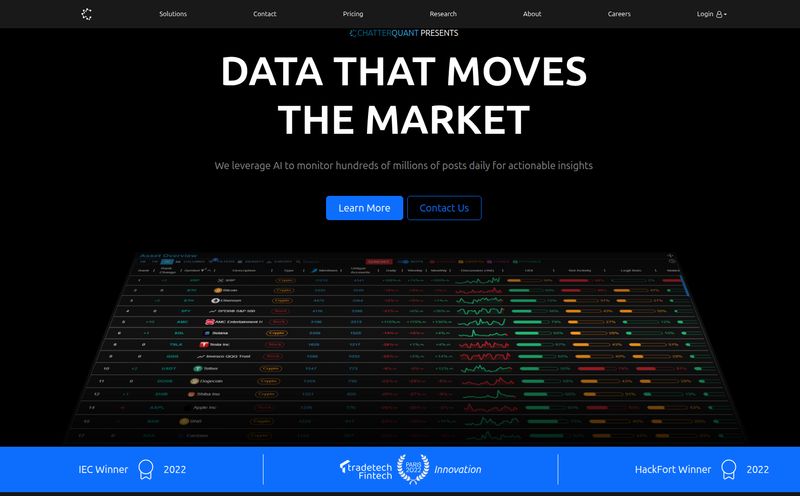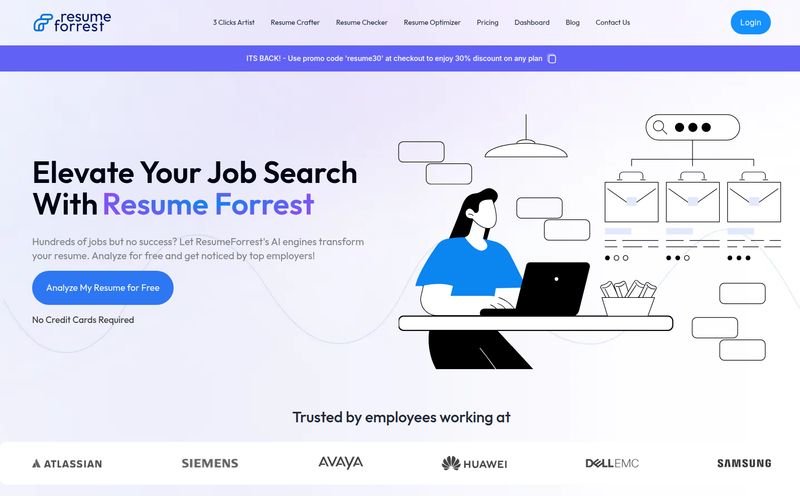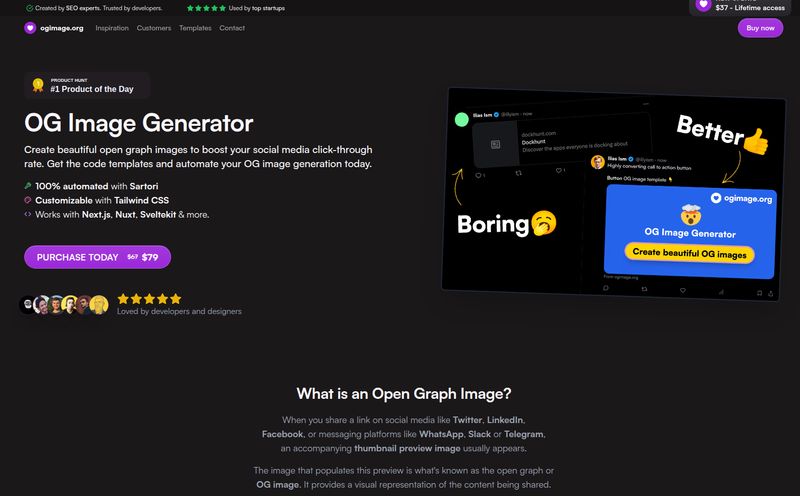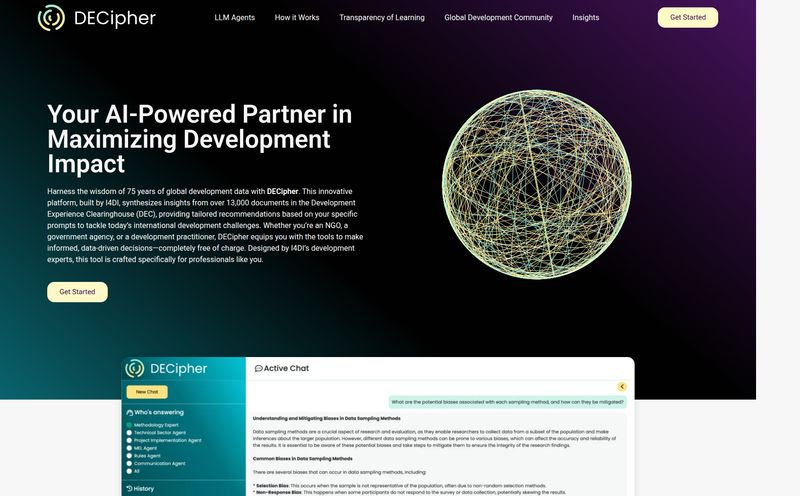Keyword research can be a soul-crushing slog. I've spent more late nights than I care to admit staring at spreadsheets, my eyes glazing over as I try to manually group keywords and figure out what on earth to write about next. It’s that part of the job that feels less like creative marketing and more like digital dishwashing. Necessary, but tedious.
So, when I first heard about a tool called Topical Map AI promising to generate over a thousand organized keywords in a single click—in under a minute—my inner skeptic went on high alert. We've all seen those shiny new tools that promise the world and deliver a pamphlet, right? But this one was built by some SEOs I respect, like Pete McPherson and Todd Foster, so I figured, what the heck. I'll give it a spin.
And folks, I’m glad I did. This might just be the thing that lets us hang up our keyword research spreadsheets for good.
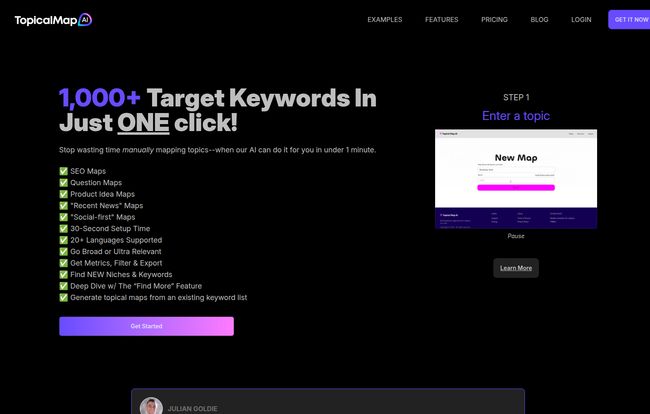
Visit Topical Map AI
First, What Even Is a Topical Map?
Before we get into the nuts and bolts of the tool, let's quickly touch on why this matters. Back in the day, SEO was a bit like a game of whack-a-mole. You found a keyword, you wrote an article, you tried to rank. Simple. But Google got smarter. A lot smarter.
Now, it's all about topical authority. Google doesn't just want to see one article on 'dog training'; it wants to see that you're an expert who has covered 'leash training', 'potty training puppies', 'positive reinforcement techniques', 'best treats for training', and so on. A topical map is essentially a blueprint for building that authority. It's a structured collection of semantically related topics and subtopics that shows search engines you know your stuff inside and out. It's the difference between being a tourist and being a local guide in your niche.
My First Run with Topical Map AI Was an 'Aha!' Moment
The setup is ridiculously simple. You enter a broad topic—I tried "backyard chicken coops" for a little side project I'm tinkering with. You select a map type (more on that in a second), a language, and a country. You hit 'Generate'.
And you wait. But not for long. Less than a minute later, I had a full-blown content strategy laid out before me. It wasn't just a list; it was organized into parent topics (silos) like 'Coop Design Plans,' 'Predator Proofing,' 'Chicken Health Basics,' and 'DIY Coop Materials.' Under each of these were dozens of long-tail keywords and content ideas. Things I hadn't even thought of. It felt less like a data dump and more like a brainstorming session with a team of hyper-caffeinated SEO assistants.
The Different 'Flavors' of Maps
One of the coolest things about Topical Map AI is that it's not a one-trick pony. It offers different types of maps, which is like having different lenses for your camera—each one gives you a unique perspective on your topic.
SEO Maps
This is your bread and butter. It's designed to build that sweet, sweet topical authority we just talked about. It gives you the clusters and silos you need to structure your site content for maximum search engine love. This is the one you'll probably use most often for blog content planning.
Question Maps
Oh, I love this one. It pulls questions people are actually asking online about your topic. Think of it as an instant 'People Also Ask' and Quora deep-dive, all in one. Perfect for creating helpful, problem-solving content that resonates with readers and nabs featured snippets.
Social-first Maps
Struggling with what to post on social media? This map type generates ideas tailored for engagement—think viral-style content, quick tips, and conversation starters. It’s a bit different from your standard SEO fare, focusing on what will make people stop scrolling. As someone who constantly forgets to plan social content, this felt like a godsend.
Other Nifty Maps
It also has maps for Product Ideas (amazing for niche sites or creators), Recent News (great for timely, traffic-spiking articles), and more. This versatility means it's not just for bloggers, but for entrepreneurs, marketers, and pretty much anyone doing anything online.
The Good, The Bad, and The AI-Generated
No tool is perfect, and I'm not going to pretend this one is. Let's get into the real talk.
The biggest upside is the sheer amount of time it saves. What used to take me a full day (or more) of frustrating work now takes less time than it takes to brew a pot of coffee. It also shatters creative blocks by handing you hundreds of ideas on a silver platter. The interface is clean, you can export everything to a CSV, and the multi-language support is a huge plus for international SEOs.
Now, for the 'could be better' part. The AI-generated subtopics aren't always 100% perfect. You might get a few that are slightly off or repetitive. One of the testimonials on their own site from Karen E. even says, "The subtopics aren't all perfect for my readers but most of them are and it's ideas I would not have thought of." I found this to be true. But here’s the thing: you can edit the subtopics before you generate the final map. A little bit of human cleanup is still required, but it's a tiny fraction of the work you'd do manually. Frankly, I'll take 5 minutes of cleanup over 10 hours of research any day of the week.
Let's Talk Turkey: Topical Map AI Pricing
So, what's the damage? The pricing is credit-based, with one map generation costing one credit. It seems pretty straightforward.
| Plan | Price per Month | What You Get | Best For |
|---|---|---|---|
| Basic | $29 | 30 Credits/Month | Solo bloggers, small businesses, or if you're just starting out. |
| Pro | $59 | 100 Credits/Month | Full-time bloggers, freelance SEOs, and small content teams. |
| Agency | $99 | 250 Credits/Month, Priority Support, 1-on-1 Onboarding | Marketing agencies or anyone managing a large portfolio of sites. |
All plans include access to all map types and the private Discord community. Honestly, the pricing feels fair for the value. If one good map leads to even a few successful articles, the tool pays for itself pretty quickley.
So, Who Is This Tool Really For?
I think Topical Map AI hits a sweet spot. It's simple enough that a beginner blogger can jump in and immediately get a viable content plan without needing to understand all the technicalities of semantic SEO. At the same time, it's powerful enough that an experienced SEO or a large agency can use it to dramatically speed up their workflow. If you create content for the internet in any capacity, there's a good chance this tool can help you.
Frequently Asked Questions
Do I need to be an SEO expert to use Topical Map AI?
Absolutely not. That's kind of the beauty of it. It does the heavy lifting of semantic clustering for you. If you know your niche, you can use this tool to generate a professional-level content strategy.
How many keywords do you really get?
Their site says 1,000+, and in my tests, that's been accurate. The exact number varies by topic, but you get a huge list, neatly organized into relevant categories. It's more than enough to plan your content for months.
What languages does it support?
It supports over 20 languages, including English, Spanish, German, French, Chinese, Arabic, and many more. This is a huge win for anyone working on non-English sites.
Can I export the maps?
Yep! You can copy the data with a single click or download it as a CSV file to use in Google Sheets, Excel, or your project management tool of choice. Super handy.
Is my data private?
According to their FAQ, yes. Your keywords, maps, and other data are kept private.
The Final Word on Topical Map AI
Look, I'm a jaded SEO. I've seen hundreds of tools come and go. But Topical Map AI has earned a permanent spot in my toolkit. It's not magic, but it's the closest thing I've found to a magic wand for content ideation and strategy.
It takes the most tedious part of my job and makes it fast, efficient, and even a little bit fun. It's an idea engine that helps you build real topical authority, not just chase random keywords. If you're tired of the keyword research grind, I'd say give it a shot. Your spreadsheet-weary eyes will thank you.
